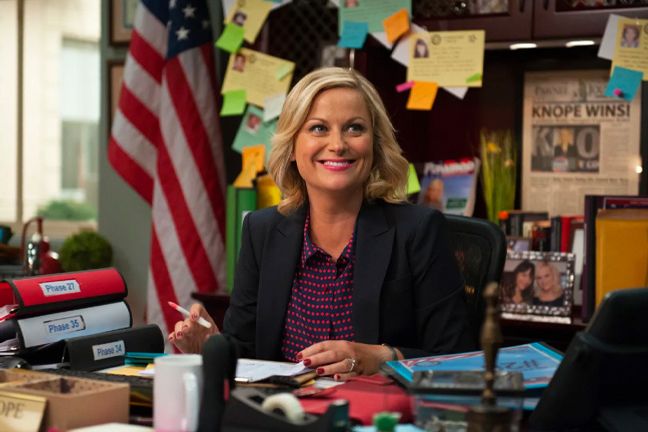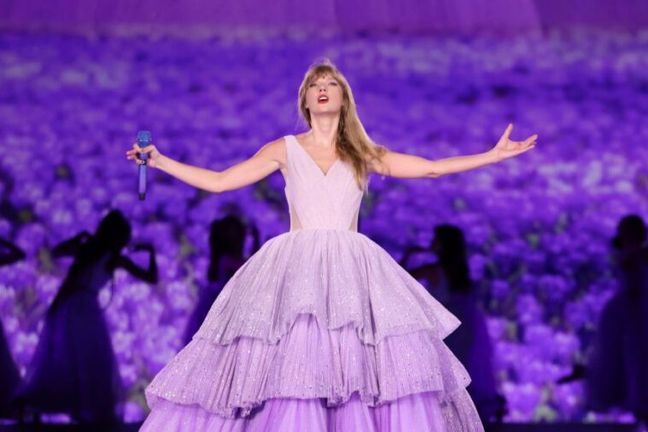Ed Sheeran is one of the most popular musicians of all time: 23 of his songs have gone multiplatinum, he is a four-time Grammy award winner, he reportedly holds the title for the highest-grossing tour of all time[i] (though he may soon lose that title thanks to his friend, Taylor Swift, one of our personal favorites), and he has lent his songwriting prowess to fellow superstars Swift, The Weeknd, Eminem, BTS, and Justin Bieber, among others.
However, his songwriting recently landed him in hot water for a second time[ii] when the family of Ed Townsend, who co-authored the song “Let’s Get It On” with Marvin Gaye, accused Mr. Sheeran of copyright infringement for his hit song, “Thinking Out Loud.”[iii] At issue was the musical building blocks of the two songs: their chord progressions and melodies specifically, with Townsend’s family arguing the progression of the four chords in Mr. Sheeran’s song was so similar to that of Townsend and Gaye’s that it constituted “theft.”[iv]
In a trial that was watched closely by the music industry and consumers alike, Mr. Sheeran’s bold creativity (which bordered on defiant at some points) ultimately protected him and his music when the jury agreed he had not infringed on any copyright. Mr. Sheeran’s trial strategy, which hinged on creativity and vulnerability, offers a lesson to defendants in all trials seeking to protect their name, business, and reputation.
What Was the Contention and What Was at Stake?
Plaintiffs filed their lawsuit in 2017 alleging the two songs at issue had such “striking similarities” and “overt common elements” as to constitute copyright infringement on the part of Sheeran.[v] While the chord progressions in each song are similar, they are not identical, and it was that similarity that served as the primary basis for the plaintiffs’ allegations.
As a result of the nature of songwriting and the necessary commonality due simply to the structure of music, the plaintiffs’ contention in their suit against Mr. Sheeran therefore had far-reaching implications for songwriters and artists of all stripes; as one critic argued, “…the lawsuit and its implications are the musical version of saying to a painter: You’ll have to pay to use red. Someone else used it first.”[vi]
It appears plaintiffs’ counsel did not specify a requested amount from the jury, but court records indicate the demand was $9.9M.[vii] The lawsuit was far from the first of its kind. In 2018, a jury concluded musical artists Robin Thicke and Pharrell Williams violated a copyright held by Marvin Gaye’s family and awarded the plaintiffs nearly $5 million.[viii] Ed Sheeran was previously the subject of another copyright lawsuit for his song “Shape of You” only last year. He came out on top there, as well, and recouped his legal fees from the suit.[ix]
Anti-Nuclear Verdict® Trial Methods Bring Home a “W” for the Defense
While it is unknown if Mr. Sheeran’s defense counsel read “Nuclear Verdicts®: Defending Justice for All,”[x] several of these defense team’s trial methods touch on core Anti-Nuclear Verdict strategies. Specifically, Mr. Sheeran’s attorneys appeared to have accepted responsibility, personalized the defendant, and utilized the theme of common sense, all while embracing authenticity, vulnerability, and creativity. [xi]
The jury received lessons in music theory and composition through the testimony of musicology experts from both sides. The plaintiffs’ musicologist told jurors that 70% of Mr. Sheeran’s song was derived from “Let’s Get It On.”[xii] Mr. Sheeran’s musicologist, on the other hand, provided four songs that use the same chord-rhythm combination at issue which were written before “Let’s Get It On,” including a 1962 Motown hit and the much-beloved 1966 hit “Georgy Girl.”[xiii] However, it may have been Mr. Sheeran’s own testimony, which featured the superstar-next-door picking up his guitar for the jury and verbally sparring with the plaintiffs’ attorney, that won the day.
The plaintiffs’ “smoking gun” was a mashup of the two subject songs Mr. Sheeran performed during a concert in Zurich.[xiv] The mashup was played for the jury during trial, and Mr. Sheeran addressed the contention head-on during his testimony. While testifying on direct examination, he walked the jury through his song-writing process by pulling out his guitar. He described his creative process in depth and in so doing, explained not only his prolificacy but his success, at one time saying that his songwriting method allows him to write up to nine songs in a single day.[xv]
In explaining how he wrote “Thinking Out Loud,” Mr. Sheeran testified he collaborated with another singer-songwriter named Amy Wadge after the death of Mr. Sheeran’s paternal grandfather.[xvi] He testified the song was spurred on by a brief four-chord progression in D-major strummed casually by Ms. Wadge while Mr. Sheeran prepared to go to dinner with his parents. Upon hearing it, he said, “We need to do something with that!” and the two set to work after dinner, completing “Thinking Out Loud” by midnight.[xvii]
Accept Responsibility
Mr. Sheeran and his defense team did not shy away from the clear similarities between the two songs, but instead accepted responsibility for using what they described as commonplace “building blocks” of popular music.[xviii] By accepting responsibility for using the same tools available to all songwriters, Mr. Sheeran accomplished several things: he portrayed himself as the most reasonable party in the courtroom by not engaging in arguments that would have surely damaged his credibility, and he laid the groundwork for his defense. The jury was later instructed that independent creation is a complete defense to a claim of copyright infringement.
Personalize the Defendant
Of note in Mr. Sheeran’s testimony was not just his willingness to sing for jurors and explain his creative process (a creative strategy in and of itself), but also the personal story he told at trial. He shared with jurors his deep love of music, explaining he first became interested in the craft after joining a church choir with his mother at the age of four.[xix] His dedication to his art became apparent when he described how he quit school at 17 to gamble on music as a future, playing “anywhere that would have” him.[xx] The backstory had to have been particularly impactful for jurors who later heard him describe the toll the plaintiffs’ claims had on him. He stated he could not believe someone would listen to one of his songs and then “…diminish it by saying I stole it.”[xxi]
Mr. Sheeran’s defiant tone likely appeared reasonable considering his long-term love and investment in music. The impact of the jury’s verdict became clear when he testified a win for the plaintiffs would have a chilling effect on songwriters and cause him to leave the industry altogether: “If that happens, I’m done – I’m stopping.”[xxii] It appears by the time he reached the point in his testimony where he directly attacked the plaintiffs’ case (referring to the plaintiff’s expert’s testimony as “criminal”[xxiii]), he had won jurors over with his vulnerability. He appeared self-deprecating when he described himself as, “…not the world’s most talented guitar player,”[xxiv] clearly leaning into his persona as a regular guy who just happens to also be a superstar. That vulnerability and honesty goes far with a jury tasked with making a potentially confusing legal conclusion.
Employ the Defense Theme of Common Sense
Mr. Sheeran also made use of the crucial theme of common sense when he explained the plaintiff’s so-called “smoking gun” was anything but. During his spirited cross examination, Mr. Sheeran responded to plaintiff’s counsel’s allegations surrounding the mash-up performance by stating, “If I’d done what you’re accusing me of doing, I’d be an idiot to stand on stage in front of 20,000 people and do that.”[xxv] This appeal to common sense was reiterated by his attorney in closing, and the jury’s unanimous verdict in his favor speaks to the power of the theme.
Takeaways
While most defendants will not be able to woo a jury by singing during their testimony, all defendants can engage creatively in the formulation of trial strategy. Mr. Sheeran’s testimony and the defense mounted by his counsel demonstrate the power of authenticity and vulnerability as well as the effectiveness of accepting responsibility, personalizing the defendant, and utilizing the theme of common sense. And most defendants will not have to explain the intricacies of chord progression to persuade a jury!
Keep Reading
More by this author
Sources
[i] https://www.songhall.org/awards/winner/ed_sheeran
[ii] https://www.rollingstone.com/music/music-news/ed-sheeran-shape-of-you-trial-win-1333494/
[iii] https://www.nytimes.com/article/ed-sheeran-marvin-gaye-copyright-trial.html
[iv] Id.
[v] https://www.nbcnews.com/pop-culture/pop-culture-news/jury-reaches-verdict-ed-sheeran-get-copyright-trial-rcna82885
[vi] https://www.washingtonpost.com/opinions/2023/05/02/ed-sheeran-marvin-gaye-lawsuit-chord-progression-copyright/
[vii] Griffin v. Sheeran, S.D.N.Y., No. 1:17-cv-05221, Docket
[viii] https://www.rollingstone.com/music/music-news/robin-thicke-pharrell-williams-blurred-lines-copyright-suit-final-5-million-dollar-judgment-768508/
[ix] https://www.bbc.com/news/entertainment-arts-61006984
[x] [x] Robert F. Tyson, Nuclear Verdicts: Defending Justice for All (2020)
[xi] Robert F. Tyson, Nuclear Verdicts: Defending Justice for All (2020)
[xii] https://www.insider.com/testimony-wraps-on-corny-note-in-ed-sheeran-plagiarism-trial-2023-5
[xiii] https://www.latimes.com/entertainment-arts/music/story/2023-05-01/ed-sheeran-music-expert-testimony-copyright-trial-marvin-gaye
[xiv] https://www.billboard.com/business/legal/ed-sheeran-copyright-trial-thinking-out-loud-lets-get-it-on-testimony-1235319308/
[xv] https://www.npr.org/2023/04/27/1172678604/ed-sheeran-sang-played-his-guitar-copyright-trial
[xvi] https://www.newyorker.com/magazine/2023/06/05/ed-sheeran-copyright-infringement-lawsuit-marvin-gaye
[xvii] Id.
[xviii] https://www.insider.com/testimony-wraps-on-corny-note-in-ed-sheeran-plagiarism-trial-2023-5
[xix] https://www.npr.org/2023/04/27/1172678604/ed-sheeran-sang-played-his-guitar-copyright-trial
[xx] Id.
[xxi] https://www.billboard.com/business/legal/ed-sheeran-copyright-trial-thinking-out-loud-lets-get-it-on-testimony-1235319308/
[xxii] https://variety.com/2023/music/news/ed-sheeran-trial-jury-deliberations-testimony-copyright-case-1235602873/
[xxiii] Id.
[xxiv] https://www.npr.org/2023/04/27/1172678604/ed-sheeran-sang-played-his-guitar-copyright-trial
[xxv] https://www.yahoo.com/lifestyle/ed-sheeran-says-hed-idiot-162319827.html

 Cannabis Workers Allege Quota to Trim 4 Pounds a Day Violates the California Labor Code
Cannabis Workers Allege Quota to Trim 4 Pounds a Day Violates the California Labor Code
 The Ninth Circuit Reminds Us: Every Word Matters
The Ninth Circuit Reminds Us: Every Word Matters
 NO WAY, PRO SE! The Consequences of Abusing the Judicial System as a Pro Se Litigant in Colorado
NO WAY, PRO SE! The Consequences of Abusing the Judicial System as a Pro Se Litigant in Colorado
 Victim of Financial Mismanagement or Unlawful Retaliation? New Jersey City University Program Founder Claims School Retaliated After Reporting Alleged Sexual Harassment
Victim of Financial Mismanagement or Unlawful Retaliation? New Jersey City University Program Founder Claims School Retaliated After Reporting Alleged Sexual Harassment
 “Real Housewives” Gets a Reality Check
“Real Housewives” Gets a Reality Check
 Missing a Chapter: Insufficiency of Expert Deposition Testimony in Medical Malpractice Litigation
Missing a Chapter: Insufficiency of Expert Deposition Testimony in Medical Malpractice Litigation
 Crash Course: Why Summary Judgment Misses the Mark in Illinois Multi-Cause Limousine Crash Collision
Crash Course: Why Summary Judgment Misses the Mark in Illinois Multi-Cause Limousine Crash Collision
 Bitter Truths: Lead, Cadmium, and Defective Pleadings in California Chocolate Class Action
Bitter Truths: Lead, Cadmium, and Defective Pleadings in California Chocolate Class Action
 The Law of Unintended Consequences: Including Insurance Brokers in Litigation Strategy Communication May Waive the Attorney-Client Privilege
The Law of Unintended Consequences: Including Insurance Brokers in Litigation Strategy Communication May Waive the Attorney-Client Privilege
 You Poetic, Noble Land Mermaid: A Celebration of “Galentine’s Day”
You Poetic, Noble Land Mermaid: A Celebration of “Galentine’s Day”
 Settlement on the Slopes of Instructional Error
Settlement on the Slopes of Instructional Error
 The Covid-19 Naughty or Nice Coverage List
The Covid-19 Naughty or Nice Coverage List
 Taylor Swift’s 13 Takeaways to Stop Nuclear Verdicts®
Taylor Swift’s 13 Takeaways to Stop Nuclear Verdicts®
 Can Taylor Swift Help Prevent Nuclear Verdicts®?
Can Taylor Swift Help Prevent Nuclear Verdicts®?
 No “Getaway Car” For a Test Drive Gone Wrong
No “Getaway Car” For a Test Drive Gone Wrong
 Applying the Tyson & Mendes Methods in a Case Involving Sexual Abuse in a Colorado Hospital
Applying the Tyson & Mendes Methods in a Case Involving Sexual Abuse in a Colorado Hospital